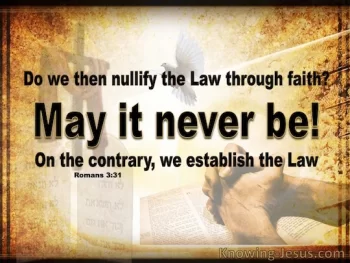Not To Be Saved, But Because We Are Saved
 Middle of the night Rabbit Trail:
Middle of the night Rabbit Trail:
I love the book of Romans. Paul summarizes the gospel story for those in Rome. He had not been able to go and visit the group himself. So, he writes a beautiful explanation.
The first three chapters set up the foundation that all are unworthy. That we cannot save ourselves. Keeping the law is not going to save us. Being a ‘Jew’ is not enough to be saved. [Our ethnicity does not set us up for any special spiritual status. Neither does our gender or social position.]
I love how he establishes that nature itself demonstrates the presence of God. Even though many throughout the history of the world have lived and died without hearing the story of the gospel, God’s message is shown through nature around us. If we live up to the light we have been given, then salvation is ours.
Paul talks of circumcision of the heart. This is the cutting away of sinful lusts, of living according to what we want. We are to walk after Christ’s example of godliness.
In chapter 3, Paul establishes that no one is righteous. No one has a special spiritual status due to being born in a certain ethnic group. Everyone has sinned. Everyone must come to God through Christ in order to be saved. There is no other way of salvation. Keeping the law does not save us.
The chapter closes with the beautiful verse in 31, “Do we then make void the law through faith? God forbid: yea, we establish the law.”
This is what many Christians fail to understand. Christ did not come to abolish/change the law. He came to fulfill it. (Matt 5:17-20) He came to show us how to live. (1 John 2:6) We are to walk as He walked. We are to ‘hold up’ the law. (Rom 3:31) Christ tells us that He lived according to His Father’s commandments. If we do likewise, then we will ‘abide’ in Him. (John 15:9-27)
When we accept Christ as our Savior, His righteousness is imputed to us. As we grow in grace, in the knowledge of God’s will, His righteousness is imparted to us. Imputed means to put on our account, like an inventory. Christ’s righteousness is put on our account, rather than our own righteousness which is as filthy rags. (Isa 64:6)
As we mature in Christian character, His righteousness is bestowed.
An analogy:
When we first accept Christ, we have access to His account of righteousness. (Think of it as a spiritual bank account.) As we grow in grace, learning of Him, it is like His spirit teaches us to live like Christ ourselves.
First, we use His bank account since ours is bankrupt. As His spirit teaches us how to live like Him (1 John 2:6), His ‘financial assets’ are deposited in larger amounts into our spiritual bank account. We have more spiritual resources to live out in our lives. At no time do these resources depend upon our own abilities, but we learn from Him what to do. So, we have more ‘grace’ to live out in our lives.
 One example that popped into my mind is a business we may join. There are countless ‘network marketing’ businesses available today. You enter the company knowing nothing about how to promote their product. Then they teach you by regular training seminars and networking calls.
One example that popped into my mind is a business we may join. There are countless ‘network marketing’ businesses available today. You enter the company knowing nothing about how to promote their product. Then they teach you by regular training seminars and networking calls.
From a spiritual perspective, these are the same as attending Bible studies with others and reading our Bibles, listening to others who have more experience share what they have learned. We slowly began to copy the methods shown and we have success in the business.
We copy the methods that have been successful in the past with others. We do not create our own methods.
In our spiritual life, we are to ‘copy’ the methods demonstrated by Christ in order to live in obedience to God’s law. This is how we ‘establish’ the law. We are to fulfill the law just as Christ did.
We cannot do it ourselves. We are able to live according to God’s law by ‘copying’ the method Christ used. (Our brain has mirror neurons. We learn by copying what we see, what we focus our mind on.)
I believe that Rom 6-8 is the pivotal message of the book. Paul tells us clearly that even though grace has been extended to us abundantly, we are not to continue in sin (breaking God’s law) [1 John 3:4] so that His grace can continue to be poured out in abundance.
Paul uses a very strong phrase, ‘God forbid.’ We are to die to sin so Christ’s spirit can live in us. Again, I use the illustration of the death row prisoner being given a pardon. Does he return to society and take up his life of crime again, thinking that he can now break the law as often as he wants?
No, if he chooses to do this, he will be locked up again, with no chance of another pardon. He is expected to return to society and live a law-abiding life.
This same concept is expected in God’s kingdom. We are to live ‘law-abiding’ lives.
Paul says if we give in to living according to the flesh, then we become servants to sin. John expresses it in stronger language. In 1 John 3:4-10, he tells us that those who purposefully continue to live in sin are children of the devil. Paul tells us that we are not to allow sin to control us.
Sin is breaking God’s law. If it is not to have control over us, then that stands to reason that we are to live in obedience to God’s law. In chapter 7, Paul discusses the battle of living according to the lusts of the flesh vs the will of God. It’s a battle of the mind.
Then in chapter 8, he starts with the beautiful promise that many love to use, but they drop the condition of the promise.
Verse 1: There is therefore now no condemnation to them which are in Christ Jesus, who walk not after the flesh, but after the Spirit.
This chapter blasts to smithereens the belief that we need to only believe and that the law has been done away with. Rather, it demonstrates to us, that through Christ’s spirit working in us, we are to live in obedience to that law.
If we continue in sin, we are living to the flesh. Vs 8 tells us that those who live according to the flesh cannot please God. If we live according to the flesh, then we do not have Christ’s spirit in us. Vs 13, if we live according to the flesh, then we will die.
Chapter 8 continues that we are to live and grow to reflect Christ’s character more fully. This can be done only when we die to self and allow God to transform us (Rom 12:1-2) back to the image of God we were designed to have.
 Living in obedience to God’s law does not save us. Rather, we choose to live in obedience to the law to demonstrate that we are saved, that we love Him (John 14:15) and that we know Him. (1 John 2:3-4). We choose to live in obedience to God’s law so we can have the right to enter His kingdom when Christ returns shortly. (Rev 22:14) We do not want to hear those words from Jesus that He doesn’t know us because we cling to those besetting sins. (Matt 7:21-23) It’s only through obedience that we will have protection against the plagues that will soon fall upon the earth. (Rev 14:12)
Living in obedience to God’s law does not save us. Rather, we choose to live in obedience to the law to demonstrate that we are saved, that we love Him (John 14:15) and that we know Him. (1 John 2:3-4). We choose to live in obedience to God’s law so we can have the right to enter His kingdom when Christ returns shortly. (Rev 22:14) We do not want to hear those words from Jesus that He doesn’t know us because we cling to those besetting sins. (Matt 7:21-23) It’s only through obedience that we will have protection against the plagues that will soon fall upon the earth. (Rev 14:12)
I pray that each believer will continue to willingly submit their will to Christ so He can live out His life in them. Time is running out. Soon Jesus will stand up and say those words, ‘He that is unjust, let him be unjust still: and he which is filthy, let him be filthy still: and he that is righteous, let him be righteous still: and he that is holy, let him be holy still.’
Jesus will leave His mediatory work in the Most Holy Place and change into His kingly robes. When He leaves the Most Holy Place, there will remain no more time to make things right. Those who are walking in obedience to God’s law will be at the place where they will choose to sin no more. Probation will close. Those not walking in complete obedience will experience the consequences of choosing their own way of salvation through the outpouring of the seven last plagues.
Something to think about.